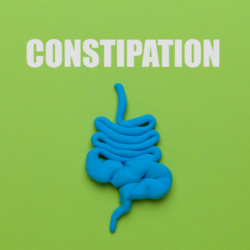SIFO(Small Intestinal Fungal Overgrowth), also known as intestinal candidiasis, is an increasingly common condition affecting people’s digestive health. The condition is characterised by an overgrowth of fungi in the small intestine, which can lead to a variety of uncomfortable and painful symptoms. In this article, we’ll explore in depth what SIFO is, its symptoms, diagnosis and treatment.
What is SIFO?
OFIS is a condition in which an overgrowth of fungi occurs in the small intestine. This type of fungus consists mainly of Candida albicans, which is a fungus naturally present in the human gastrointestinal tract. However, when it grows out of control, it can lead to serious health problems.
What are the symptoms of SIFO?
Common symptoms of SIFO include:
- bloating
- abdominal pain
- diarrhoea
- constipation
- flatulence
- acid reflux
- skin rashes
- chronic fatigue
- depression
- sleep disorders
These symptoms can be severe and have a considerable impact on the quality of life of sufferers.
How do I know if I have SIFO ?
Diagnosing IOFS can be difficult as it can be easily confused with other common gastrointestinal conditions, such as irritable bowel syndrome (IBS). However, blood tests, stool tests and breath tests can be used to detect an overgrowth of fungi in the small intestine.
How is IBS treated?
Treatment of OFIS is usually carried out using a combined approach, which may include dietary changes, antifungal medication and probiotics. Dietary changes often involve reducing sugar and refined carbohydrates, as these feed the fungi. Antifungal medication can be prescribed to kill the fungi, while probiotics can help restore a healthy balance of intestinal flora.
Medicinal approaches
The main drug treatment for OFIS is the use of antifungals. These drugs, such as fluconazole or itraconazole, aim to reduce fungal overgrowth in the gut. It is crucial that these treatments are prescribed and monitored by a healthcare professional, as inappropriate use can lead to resistance or undesirable side effects. In some cases, drugs designed to restore the balance of intestinal flora, such as probiotics, may be recommended as a complement to antifungal agents.
Natural approaches and remedies
In addition to medicinal treatments, natural approaches can also be effective in managing OIFS. Among these approaches, the use of natural probiotics, such as those found in yoghurt or kefir, can help to rebalance the intestinal flora. Supplements such as garlic, oregano oil or grapefruit seed extract have antifungal properties and can be used in addition to the main treatment. However, it is advisable to consult a healthcare professional before initiating these alternative treatments to ensure they are appropriate and safe.
What are the best natural antifungals available in pharmacies?
A number of natural antifungals are available in pharmacies, offering alternatives to conventional medicines. Here are some of the best products:
| Product | Description |
|---|---|
| PURESSENTIEL Organic Essential Oil Oregano compact | Essential oil with antibacterial and antifungal properties, effective against fungal infections. |
| Solaray Cleanse Candida | Food supplement designed to balance the intestinal flora and combat Candida. |
| Pileje Digebiane sBO Prise En Charge Sibo | Formulated to support digestion and regulate intestinal flora, useful in cases of SIBO or fungal overgrowth. |
| Dr Valnet Mountain Savory Organic Essential Oil | Antiseptic essential oil, used as a complement in the treatment of fungal infections. |
Are probiotics useful in cases of SIFO?
Probiotics are bacteria that are beneficial to our digestive health and are often used to maintain a healthy intestinal flora. In the case of SIFO, the use of probiotics can be beneficial in restoring a healthy balance to the intestinal flora, which can be disturbed by the excessive proliferation of fungi.
However, it is important to note that not all probiotics are created equal and some may not be effective in treating SIFO. It is recommended to choose specific probiotics for the treatment of OIFS, such as Lactobacillus and Bifidobacterium strains, which have been shown to help reduce Candida levels in the small intestine.
In addition, it is important to consult a healthcare professional before starting treatment with probiotics, as some types of OFIS may be made worse by the use of probiotics. The healthcare professional can recommend specific probiotics and doses tailored to each individual to effectively treat SIFO.
Can homeopathy be used to treat SIFO ?
Homeopathy is an alternative medicine that uses natural substances to stimulate the body to heal itself. In the case of OIFS, homeopathy can be used to help reduce symptoms and restore a healthy balance in the intestinal flora.
Some homeopathic remedies commonly used in the treatment of OIFS include Candida Albicans, Borax, Natrum Muriaticum and Pulsatilla. These remedies can be used alone or in combination to help reduce symptoms of OIWI such as bloating, abdominal pain, fatigue and mood disorders.
However, it is important to note that homeopathy is not a scientifically proven treatment method for FOS and should not be used as a substitute for conventional medical treatment. It is advisable to consult a healthcare professional before starting homeopathic treatment for OIFS to determine whether it is suitable for each individual and whether it poses any health risks.
How can gemmotherapy help relieve SIFO?
Gemmotherapy is an alternative therapy that uses the properties of plant buds and young shoots to help treat a variety of health problems, including SIFO. Buds and young shoots contain a high concentration of active ingredients that can help stimulate the immune system and reduce inflammation in the intestine.
Some of the buds commonly used in the treatment of OIFS include oak bud, walnut bud, rosemary bud and fig bud. These buds can be used alone or in combination to help reduce symptoms of SIFOsuch as bloating, abdominal pain, fatigue and mood disorders.
However, it is important to note that gemmotherapy is not a scientifically proven method of treatment for OIFS and should not be used as a substitute for conventional medical treatment. It is recommended that a healthcare professional be consulted before starting gemmotherapy treatment for OIFS to determine whether it is suitable for each individual and whether it poses any health risks.
What diet should be adopted in the case of SIFO?
Diet plays an important role in the treatment of SIFO, as certain foods can feed the fungi in the gut, while others can help reduce their overgrowth. Dietary changes can be beneficial in reducing the symptoms of OFIS and maintaining a healthy balance of intestinal flora.
It is advisable to avoid foods rich in sugar and refined carbohydrates, as these can feed fungi in the gut. It is preferable to eat foods rich in fibre, such as vegetables, fruit, whole grains and legumes. Foods rich in omega-3 fatty acids, such as fish, nuts and seeds, can also help reduce inflammation in the intestine.
It is also advisable to take prebiotics and probiotics to maintain a healthy balance of intestinal flora. Prebiotics are non-digestible dietary fibres that nourish the good bacteria in the intestine, while probiotics are bacteria that are beneficial for digestive health.
It is important to note that dietary changes may not be sufficient to treat OFIS and must be combined with other forms of treatment, such as antifungal medication and probiotics. It is advisable to consult a healthcare professional for personalised advice on dietary changes to treat FOS.
How can I prevent SIFO?
There are several steps you can take to prevent SIFO, including:
- avoiding foods high in sugar and refined carbohydrates
- taking probiotics to maintain healthy intestinal flora
- avoiding antibiotics unless absolutely necessary
- taking prebiotics to nourish the good bacteria in the intestine
- avoid stress and practise relaxation techniques such as meditation and yoga
What is the difference between SIBO, Candidas and SIFO?
It is common for people to confuse the conditions of SIBO (Small Intestinal Bacterial Overgrowth), Candidas and SIFO. Although these conditions are all related to the digestive system, they have different causes and symptoms.
SIBO is caused by an overgrowth of bacteria in the small intestine, which can lead to symptoms such as bloating, abdominal pain, flatulence and diarrhoea. Candidas, on the other hand, is caused by an overgrowth of yeast (fungi) in the digestive tract, including the small intestine. Candidas symptoms can include digestive disorders, skin rashes, yeast infections and mood disorders.
SIFO, on the other hand, is also caused by an overgrowth of fungi in the small intestine, mainly Candida albicans. The symptoms of FIOI are similar to those of SIBO and Candida.
It is important to note that although these conditions may share certain symptoms, their treatment is different. It is therefore essential to obtain an accurate diagnosis to determine the appropriate treatment. If you think you have one of these conditions, it is advisable to consult a healthcare professional for advice and personalised treatment.
Case studies
Recent studies have highlighted the existence and symptoms of IFOS (intestinal fungal overgrowth). For example, two studies showed that 26% (24 out of 94) and 25.3% (38 out of 150) of patients with unexplained gastrointestinal symptoms actually had IFOS. The most commonly observed symptoms included gas, bloating, indigestion, nausea, diarrhoea and belching.
Current research on SIFO
According to a recent study from 2023, intestinal fungal overgrowth (IFOS) is closely linked to intestinal dysbiosis. This condition causes a range of gastrointestinal symptoms such as abdominal pain, bloating, gas, diarrhoea and constipation, potentially leading to problems of malabsorption and nutritional deficiencies. The study highlights the need for further clinical research to better understand the pathophysiology, effective treatments and prevention of FOS. This recent research indicates the increasing importance of recognising and treating FOS within the spectrum of gastrointestinal disorders.
Conclusion
In conclusion, SIFOis an increasingly common health problem that can cause unpleasant symptoms and affect the quality of life of those affected. However, there are a number of treatment options available to help manage this condition.
Antifungal medications, probiotics, dietary changes, homeopathy and gemmotherapy can all play a part in treating SIFO. But it’s important to remember that each person is unique and treatment should be tailored to their individual needs.
OIFS can be a difficult condition to live with, but with the right treatment and prevention practices, you can regain an optimal quality of life. If you suspect you may have OIFS, don’t hesitate to consult a healthcare professional for an accurate diagnosis and personalised treatment.
References
- https://link.springer.com/article/10.1007/s11894-015-0436-2
- https://journals.lww.com/ctg/fulltext/2018/04000/does_colectomy_predispose_to_small_intestinal.5.aspx





